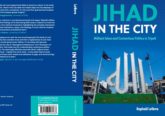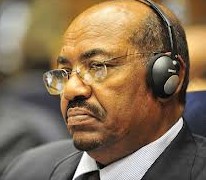
Recently, I wrote an article in Fair Observer, ‘Through the Eyes of Yusuf,’ where I offered an alternative lens to view and understand the meaning of ‘Muslim’ as a religious category, through an exegesis of the story of Yusuf (Joseph) in the Qur’an. In the piece I briefly touched on the political implications of the Prophetic tradition within Islamic theology. But I want to elaborate more here.
As much as the term ‘Muslim’ exists as a socio-political category, it is simultaneously a theological concept that signifies wholehearted submission or acceptance, through faith and through actions, to the One God. The terms ‘Islam’ (submission to the One God) and ‘Muslims’ (those who wilfully submit to the One God) are scattered throughout the text of the Qur’an as preceding the historical development of a Muslim political community and the institutionalisation of Islam as a religion.
There is, undoubtedly, a strong nexus between theological concepts and politico-religious categories, the latter often viewed as necessarily and inevitably predicated on the former. But while there is merit in reading this connection in order to understand organised religion in all its forms, there exists simultaneously a tendency to overdetermine theological concepts by falling into the trap of teleology. The sui generis lens of institutionalised religion ex post facto cannot always be sufficient in explaining theological concepts; and there is a need, time and time again, to examine and assess religious concepts philosophically, in their own right, so that we may arrive at a more holistic understanding of the meanings they ought to generate.
As a worldview, religion asserts the legitimacy of its identity as a primary lens to view the world. In contexts where religion and political sovereignty are enmeshed in popular understanding, professing an allegiance to a religious category can evoke a certain form of exclusionary politics — the dichotomy of ‘us’ versus ‘them’. It is common to find patched-up narratives in the Muslim world, for instance, that evoke the glories of a unified Muslim political community or an Islamic Caliphate — from the Abbasids and Ummayyads to the Ottomans — conveniently ommitting the inconvenient facts. Perhaps the extravagance of the dynasties or the myriad blood feuds may have been a breach of ideals, and the resuscitation of a Universal Caliphate during the time of the Ottomans may indeed have simply been a political guise to save a weakening empire. The dilemma of privileging a religious identity in our current day is compounded with the recognition of right-wing religious politics as the norm, while the voices of many mainstream Muslims are sidelined.
But to step back from the parochialism of right-wing religious politics, I would argue that one need not merely point to the modern origins of ‘statehood’ as a conceptual category, but also look more deeply to the very stories of the Prophets, upheld as the first ‘Muslims’ and as eternal sources of guidance in the Qur’an. In the Islamic tradition, the common lineage with the Judeo-Christian tradition is not seen as a source of conflict, but one of unity, signifying the Oneness of the Divine source. In the Qur’an, these stories are retold in the tradition of ‘dhikr,’ (i.e. remembrance or a reminder) to emphasise the most important details, either to make a point or distinguish it from the Biblical version of events. Thus, compared to other stories of the Prophets, the story of Yusuf (Joseph) shows commonality in the three traditions, with certain variations in the responses of the characters at several stages.
In my article, I chose to focus on the narrative of Yusuf, described in the Qur’an as ‘ahsan-al qasas’, the most beautiful of stories for the guidance of Prophet Muhammad and the believers. Yusuf in the narrative, much like Abraham and others, is the quintessential embodiment of Islam, whose life offers a commentary on the place of an individual within society, and on ethics in interpersonal and communal relationships — in positions of authority and dependence. By taking the story of Yusuf as a focal point of my argument, I illustrate how the Prophetic tradition within Islam, notwithstanding the differences, is a means to conceptualise the ‘Muslim’ religious identity in a more cosmopolitan and universal light, with implications for our understanding of religion in relationship with politics, society and even governance. You can read my article here.
Heba Al-Adawy recently completed an MPhil in Middle Eastern History and Politics at Oxford University. She specialises in Middle East History and Islamic Political Thought, but has also researched and written on the former Yugoslavia, and religion and sovereignty in Western political thought.





No Comment